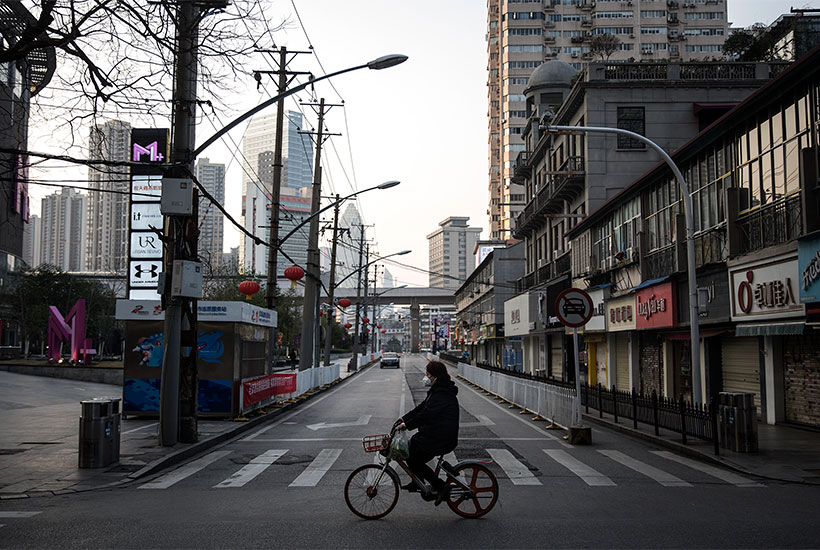Monday night’s Commons rebellion over Huawei was on a surprisingly serious scale for a new government with a big mandate. The problem for the government is not just the actual danger of our security being breached by Huawei, real though that is. It is also strategic. The government is not treating the subject this way, but sees it as merely a matter for the Department for Digital, Culture, Media and Sport. This is a bad mistake. We have achieved Brexit. We are making our own way in the world. Our closest allies in terms of trust, language, cultural links, democratic values and shared interests are our four partner nations in the ‘Five Eyes’ deep intelligence partnership — the United States, Canada, Australia and New Zealand. Yet we are refusing this logic, weakening trust with these allies, and making ourselves dependent on a country, China, which is not far short of being our enemy and which pays significant numbers of our elites to advance aims which, though commercial, are inseparable from its politics. Obviously the arrival of the coronavirus is a complete coincidence, but it is a metaphor for the vulnerability of our position.
There cannot be many positive aspects to the coronavirus outbreak, but I wonder if it carries one for stock markets. We had been told repeatedly, before all this, that the markets badly needed a ‘correction’ after their uniquely long bull run. If they were now sliding because of a banking or commercial event, confidence might collapse. If, however, they are falling because of a disease, will it also mean that confidence will recover more quickly once the disease is contained?
At the end of last week, the leader of the Chinese Communist party in the affected city of Wuhan announced at a press conference that Chinese people should ‘learn to say “thank you” to the party’. I gather from Chinese sources that this gentleman’s demand immediately produced universal ridicule on his country’s social media. People complained that they had lost relatives unnecessarily, that other diseases (including, for example, urgent breast cancer) had not been treated, and that key information had been withheld in the crucial early weeks when the virus was spreading. These complaints came not only from Wuhan, but from everywhere. Because of the nature of the disease, there are no protests in the street. This makes the internet an even more important forum than usual for people expressing their disgust. So great was the chorus of execration that the authorities deleted the Wuhan leader’s words online.
A particular theme of discontent is ‘13 days’. This was the time in January between when, according to Chinese official media, President Xi Jinping first became aware of the nature of the virus, and when, on 20 January, the fact of human-to-human transmission of the virus was publicly admitted. What did he do — or fail to do — in between? If he had admitted that he had done very little, my sources suggest that the situation would have been like the latter days of the Soviet Union, when people simply gave up believing what the authorities told them. It is otherwise in neighbouring Taiwan which, at the time of writing, has had a mere 48 cases, although only 81 miles from China and taking in 2.71 million visits from China last year. The WHO first announced the Wuhan outbreak of pneumonia on 31 December. By 5 January, thanks to its Big Data analytics, Taiwan was able to identify on entry all those who had travelled to Wuhan in the previous 14 days and had a fever. It then screened them for 26 viruses, and quarantined them where necessary. It has a pre-existing National Health Command Center and a Central Epidemic Command Center. Thanks to the former, 44 million surgical masks (for a population of 23 million) were available by 20 January, as were 1.9 million of the higher-grade N95 masks.
Having done kings and queens, and prime ministers, Andrew Gimson, sometime deputy editor of this paper, has now produced Gimson’s Presidents. It is his crisp and witty ‘Brief Lives from Washington to Trump’. Only Washington, Lincoln and the two Roosevelts get more than ten pages in the book. I feel ashamed of the fact that I had not heard of a couple of the 19th-century ones. Gimson’s entry on one such, Millard Fillmore (President 1850-53), is particularly enjoyable. He writes of ‘the sense of surpassing vacuousness which he conveyed’. When Fillmore complained to the White House attendant that the President should not have to ride around in a second-hand carriage (having got the post not through election but through the death of the previous incumbent, Zachary Taylor), the old Irishman replied: ‘But, sure your Ixcellency is only a sicond-hand president.’ Fillmore did one admirable thing, though. He refused an honorary degree from the University of Oxford, on the grounds that he knew no Latin: ‘No man should, in my judgment, accept a degree he cannot read.’
Our small village has what is always a blessing and is now a great rarity — its own butcher. F.J. Jarvis & Sons has been going since 1870. We are devoted customers. Recently, however, Nigel Jarvis, the current incumbent, had to admit defeat over chickens. For many years, he has produced examples which were not only free-range, but relatively elderly. As a result of walking around a lot and living happy lives, they had a full, sturdy, mature taste, memorable in a way that most chickens are not. Now their local producer has retired and Nigel can find no substitute. The country is nowadays full of ‘free-range’ chickens, but this is almost a term of art. They are generally not what you and I would think of as free-born citizens of the hen world. I should be interested to hear from readers who know where such birds can be sourced, especially if they are in or near the county of Sussex.







Comments